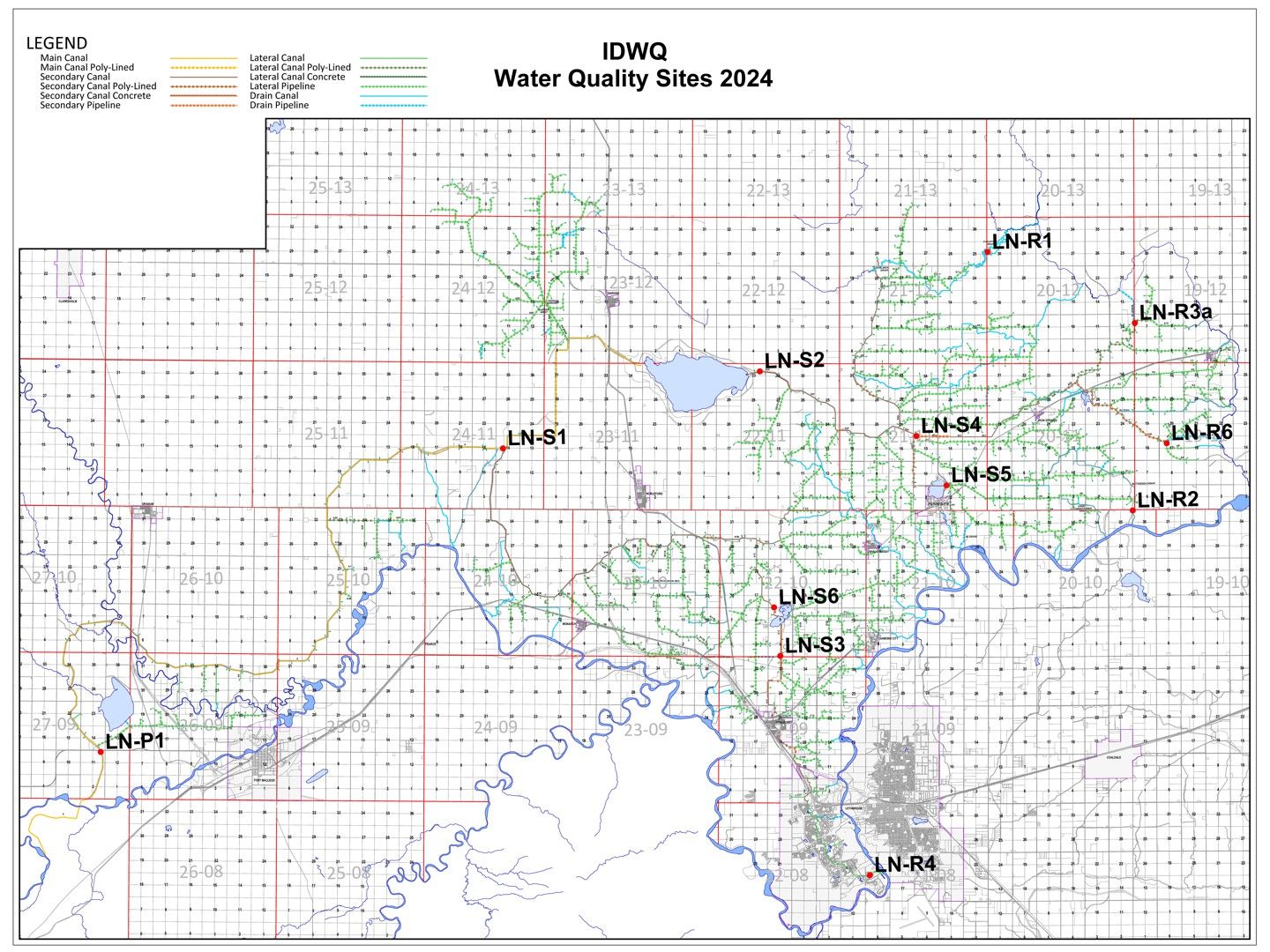Irrigation District Water Quality (IDWQ) Program Update
September 11, 2024

Lethbridge Northern Irrigation District (LNID) completes water quality testing as a participant in the Irrigation District Water Quality (IDWQ) program, developed by the Water Quality Branch of Alberta Agriculture and Irrigation (AGI) in consultation with irrigation districts. The purpose of the program is to demonstrate stewardship for the quality of water delivered to grow our food. The Alberta Irrigation Districts Association (AIDA) now administers the IDWQ program, while AGI continues to provide training to irrigation district personnel in sampling and collection methodology and oversees data analysis and reporting.
Water sampling for the IDWQ program takes place monthly during the irrigation season at several primary (main canal), secondary (lateral canal), and return flow open water sites within LNID infrastructure. Analysis of key parameters is completed by a qualified laboratory, processed and indexed by AGI, and assessed against Alberta surface water quality guidelines for irrigation use. The Alberta guidelines are based on the environmental quality guidelines established by the Canadian Council of Ministers of the Environment (CCME). The results from the IDWQ program, including comprehensive data tables, is available to the public at this website.
Overall, the quality of water delivered within all irrigation districts, and LNID in particular, meets the indexed rating of good to excellent for irrigation use. This is one of the key advantages of southern Alberta in responsible delivery of Rocky Mountain water for growing our food, with value-added economic benefits that contribute significantly to our provincial GDP.
E. coli is an example of a biological parameter tested for in the collected water samples. Although there is no guideline for irrigation use, according to Alberta Environmental Quality Guidelines for Alberta Surface Waters (2018), the E.coli guideline for recreational use is 100cfu/100 ml (Table 3). For the full document, click here.
Irrigation water from LNID flows through Park Lake, within Park Lake Provincial Park. Data recorded in 2024 from the samples taken at the two (2) sites located upstream and downstream of Park Lake, LN-S6 and LN-S3, show concentrations of E. coli consistently below the guideline for recreational use.
Into Park Lake (LN-S6) cfu (colony forming units)
June 3, 2024: 6 cfu/100ml
July 8, 2024: 55 cfu/100ml
August 12, 2024: 14 cfu/100ml
Out of Park Lake (LN-S3)
June 3, 2024: <1 cfu/100ml
July 8, 2024: 11 cfu/100ml
August 12, 2024: 4 cfu/100ml
Of further note is that Park Lake is typical of reservoirs in acting as a ‘sink’ for water quality parameters that settle out attached to fine particles transported by the upstream canal. These parameters are ‘cleaned’ by biological processes in the sediment and riparian vegetation near the reservoir inlet, resulting in lower concentrations leaving the reservoir.
Alberta Forestry and Parks completes their own testing. Information about any possible safety/health concerns for swimming locations at provincial parks can be found here.
LNID cares about the quality of water conveyed throughout our system and strives toward continuous improvement in stewardship of this valued resource.